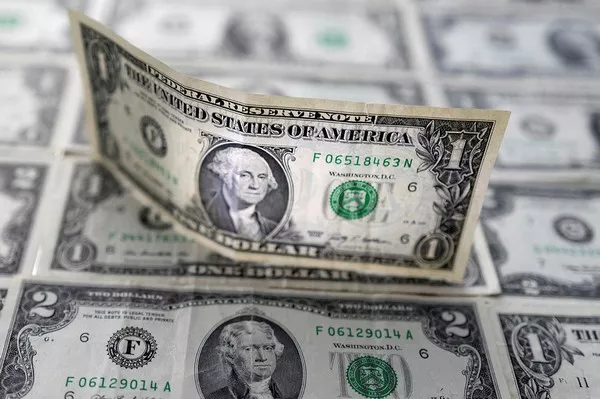For individuals and businesses engaged in international trade or planning to travel abroad, acquiring foreign currency is essential. This article aims to provide a comprehensive guide on buying dollars from banks, outlining the process, considerations, and factors that influence currency exchange transactions. Whether you’re a seasoned traveler or a novice investor, understanding the mechanics of purchasing dollars from banks can help you make informed decisions.
1. Why Buy Dollars from Banks?
Banks serve as primary intermediaries in currency exchange transactions. They offer several advantages, including competitive exchange rates, convenience, security, and regulatory compliance. Additionally, banks typically offer a range of services such as cash purchases, wire transfers, and prepaid travel cards, making them a one-stop solution for obtaining U.S. dollars.
2. Identifying Banks Offering Currency Exchange Services:
Most commercial banks facilitate currency exchange transactions. However, it is important to research and identify banks that offer favorable rates and reliable services. Consider factors such as reputation, accessibility, customer service, and transaction fees when selecting a bank for your dollar purchase.
3. Understanding Exchange Rates:
Exchange rates fluctuate constantly due to various economic and geopolitical factors. Before buying dollars, it is crucial to understand how exchange rates work. Banks quote exchange rates that represent the value of one currency relative to another. The rates provided by banks may include a spread, which represents their profit margin. The spread is the difference between the buying (bid) and selling (ask) rates. Comparing rates among different banks can help you secure more favorable deals.
4. Required Documentation and Identification:
When purchasing dollars from a bank, you will be required to provide documentation and identification to comply with anti-money laundering and know-your-customer regulations. Generally, individuals need to present valid identification documents such as passports, driver’s licenses, or national identity cards. Depending on the jurisdiction and the amount of the transaction, additional documentation may be necessary.
5. Cash Purchase vs. Wire Transfers:
Banks offer two primary methods for buying dollars: cash purchases and wire transfers. Cash purchases involve physically obtaining U.S. dollar banknotes from the bank. This option is suitable for those who prefer to have physical currency on hand. On the other hand, wire transfers allow you to electronically transfer funds in U.S. dollars to a beneficiary’s bank account. Wire transfers are commonly used for larger transactions or when making payments to international suppliers or business partners.
6. Considerations for Travelers:
If you are planning to travel to the United States or any other country that accepts U.S. dollars, it is essential to consider your foreign currency needs. Determine the amount of cash you require for immediate expenses such as transportation, meals, and incidentals. Banks often offer preloaded travel cards that provide convenient access to U.S. dollars while offering security features and ease of use.
7. Considerations for Investors:
Investors seeking to buy dollars for investment purposes should consider their objectives, risk tolerance, and time horizon. If you aim to invest in U.S. assets or diversify your portfolio, consult with your bank about investment options such as U.S.-dollar denominated accounts, certificates of deposit (CDs), or mutual funds. Assess the associated risks, potential returns, and tax implications before making investment decisions.
8. Transaction Costs and Fees:
Currency exchange transactions may incur various costs and fees. These can include service charges, commission fees, transaction fees, and spread costs. It is essential to inquire about the total cost of the transaction before proceeding. Sometimes, negotiating better rates or waiving certain fees may be possible, particularly for large or frequent transactions.
9. Timing Your Currency Exchange:
Exchange rates can fluctuate significantly within short periods. Timing your currency exchange can impact the amount of dollars you receive. While trying to predict exchange rate movements is challenging, monitoring market trends and seeking guidance from bank experts or currency specialists can help you make more informed decisions. Consider factors such as economic indicators, geopolitical events, and central bank actions that may influence exchange rates.
10. Alternatives to Banks:
While banks are a popular choice for buying dollars, alternative options exist. Foreign exchange bureaus, online currency exchange platforms, and peer-to-peer exchanges offer additional avenues for obtaining U.S. dollars. It is advisable to research these alternatives, compare rates, and evaluate their reliability before engaging in transactions with them.
Conclusion:
Buying dollars from banks is a straightforward process that involves understanding exchange rates, selecting a reputable bank, providing necessary documentation, and considering transaction costs. By conducting thorough research, comparing rates, and staying informed about market trends, individuals and businesses can ensure they receive competitive rates when acquiring U.S. dollars. Remember to assess your specific needs, whether traveling or investing, and consider alternative options if they align better with your requirements. Consulting with financial professionals or currency specialists can also provide valuable insights and guidance throughout the process.


